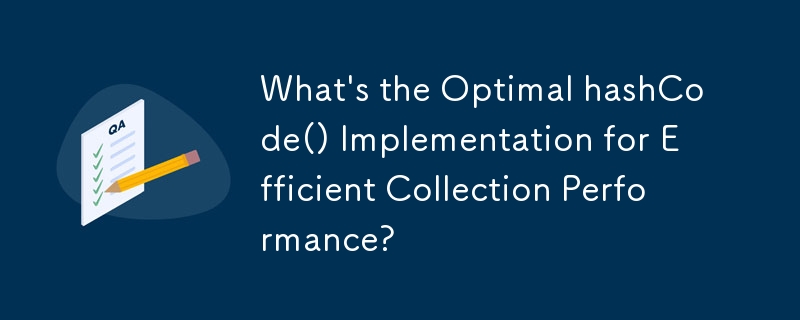

Evaluating Optimal hashCode Implementation for Collections
In programming, the hashCode() method plays a crucial role in determining the distribution of objects in a collection based on their content. The choice of an optimal implementation for this method is essential to ensure efficient lookups and storage.
Factors Influencing Implementation Decision
The best implementation of the hashCode() method is contingent upon the specific usage pattern and the characteristics of the objects in the collection. The optimal strategy will vary depending on the data type, distribution, and likelihood of collisions.
Effective Java's Recommendation
Josh Bloch's "Effective Java" (2nd edition) proposes a versatile implementation that has proven effective for diverse use cases. Here's a condensed version of the recommended approach:
Calculate hash codes for individual fields: For each field that is compared in the equals() method, determine the hash code (c) using specific calculations for different data types:
Conclusion
The aforementioned implementation provides a robust distribution of hash values in most practical scenarios. However, it is worth noting that the choice of optimal hashCode() implementation should be driven by careful evaluation of the specific collection usage context and object characteristics.
The above is the detailed content of What's the Optimal hashCode() Implementation for Efficient Collection Performance?. For more information, please follow other related articles on the PHP Chinese website!




